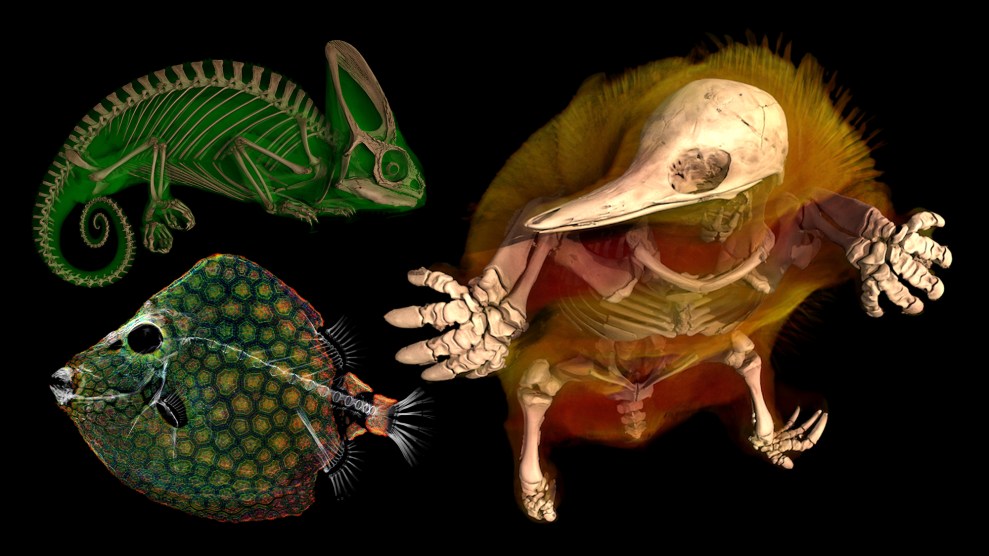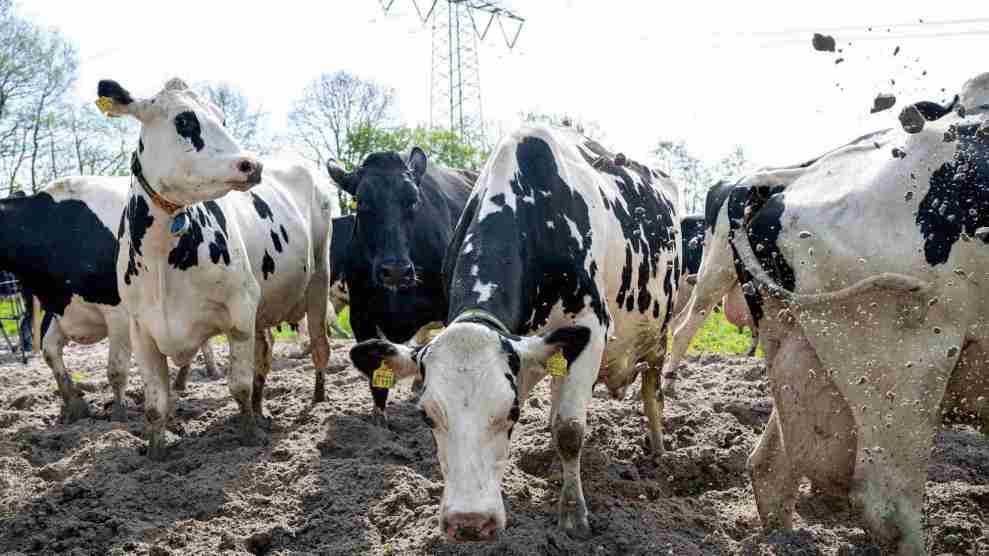People and menhaden generally don’t mix well. If the fish’s legendary stench doesn’t scare off adventurous diners, its bony flesh probably will. Yet in its relentless quest to wring profit from the tiny, ecologically vital fish, Omega Protein, a Houston-based company, has done the near-impossible: It has not only made menhaden edible—it’s gone one step further and turned it into a health food.
Omega Protein, which holds a virtual monopoly over the menhaden fishery along the Atlantic and Gulf Coasts, understands that most Americans have little use for the products that make up the bulk of its bottom line, such as fertilizer. So it’s tried to base its public image on the versatile fish’s use as a rich source of omega-3 fatty acids. Hence a company name that evokes not scenes of industrial fishing but images of glowing health. “We’re Not Making Health Claims… We’re Too Busy Making Headlines,” trumpets the website for OmegaPure, the company’s brand of fish-oil supplements. As the site explains, OmegaPure is meant to appeal to “health-conscious consumers” who add its odorless, tasteless, and organic capsules to their diet. The marketing might be smart, but it’s debatable whether OmegaPure is as indispensable as it sounds.
Omega Protein is not exaggerating, however, when it plays up the importance of omega-3 fatty acids. Studies have shown that they can reduce the risk of sudden cardiac death, reduce arterial plaque, and slightly lower blood pressure. Omega-3’s protective powers also go beyond fighting heart disease. They also improve brain functioning, alleviate inflammatory diseases, and may prevent breast cancer. A recent study by the National Institutes of Health revealed that children whose mothers had high intake of omega-3 during pregnancy have higher IQ’s, better fine-motor skills, and sharper social skills than those whose moms did not. And the British-based Mental Health Foundation has gone one step further, drawing a link between decreased omega-3 consumption over the past five decades and the prevalence of depression and other psychological illnesses.
So is popping menhaden in capsule form the best way to get your daily omega-3 boost? Not necessarily. The American Heart Association (AHA) recommends that people with healthy hearts get their omega-3 fix by eating at least two servings of fatty fish every week as a source of long-chain omega-3. It also recommends eating soy, flaxseeds, walnuts, and canola and soybean oils, all of which are rich in another form of omega-3. It recommends omega-3 supplements only to people with coronary heart disease or high triglyceride levels. So if your coronary health is good, there’s probably no rush to supplement your diet with a product such as OmegaPure.
Yet if you’re concerned about high mercury levels in farmed salmon or tuna, menhaden may start to sound more appealing. Unlike most fatty fish, plankton-swilling menhaden eat near the bottom of the food chain and have low mercury levels. But menhaden oil has plenty of competition when it comes to other fish-oil supplements. In a survey of 75 fish-based omega-3 supplements, the environmental group OceansAlive found that 80 percent met the strictest standards for eliminating contaminants such as mercury and dioxins. OmegaPure told OceansAlive that it complied with FDA guidelines, but it did not say whether it also followed the group’s more stringent standards.
In short, when it comes to finding good sources of omega-3, there are plenty of other fish in the sea besides menhaden. But perhaps the most important reason for looking for alternatives is the sustainability of the menhaden fishery. Despite Omega Protein’s reassurances that menhaden are “found in abundant quantities,” the fish’s steady decline is having disastrous effects on the Chesapeake Bay and other coastal areas where the species once thrived. Measured against such ecological damage, the benefits of menhaden oil seem slight. After all, being heart-smart shouldn’t mean being heartless.
















